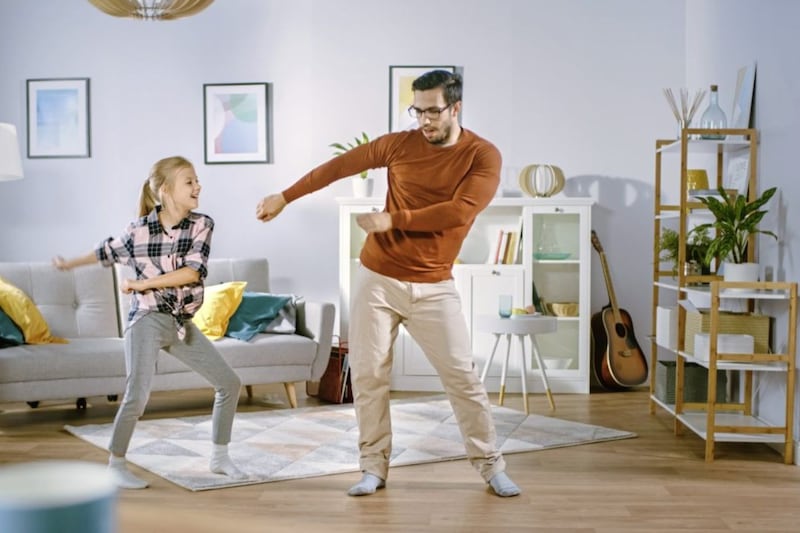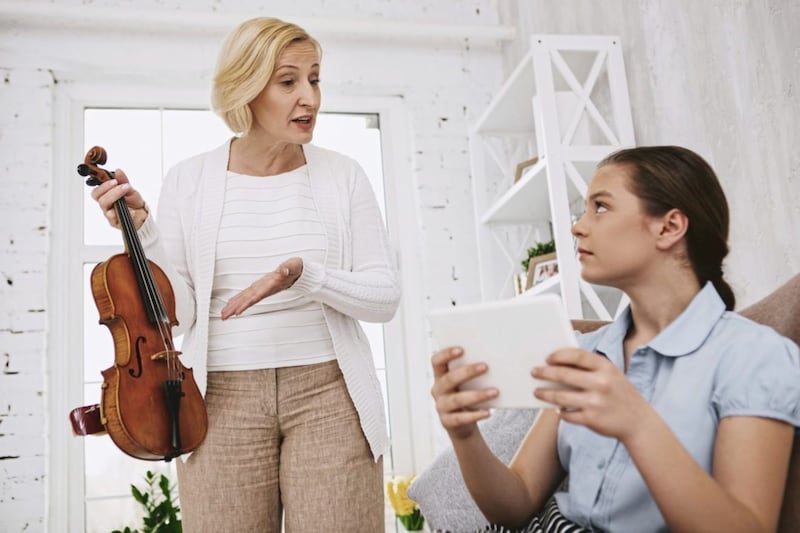FITTING exercise into a busy family set up is tough enough. But once summer lands, our social lives start sizzling, childcare can become tricky, and any weekly classes or morning workouts seem much harder to achieve. But it doesn't have to be that way.
Being a fit family has actually never been more important. Following a survey which found a third of children are currently participating in fewer than 30 minutes of exercise a day, the British government has unveiled its School Sport and Activity Action Plan.
"The government recommends children take 60 minutes of physical activity a day, ranging from cycling and general playground activity, to more structured, vigorous sports, like running, netball and football," says fitness expert Laura Williams (laurawilliamsonline.co.uk).
"And on three days a week, activity should include exercise which strengthens muscles and bones – this could include dynamic exercise like swinging or hanging from playground equipment, jumping exercises like hopping and skipping, gymnastics and other fitness which uses their body weight."
She adds: "It's important that children participate in both forms of exercise as they work in different ways for your child's health. Any physical movement helps to maintain a healthy weight, offsetting those treats they may be partial to, as well as keeping them energetic and alert for everyday living. It also helps keep their heart and lungs healthy."
Increased strength, on the other hand, helps with pretty much everything – from carrying a backpack to trying out for the school football team.
"And it's liberating for your child to have a fit, strong body – it opens sports doors at school, boosts energy, and helps to maintain a healthy weight and body image," says Williams.
Delving into the world of fitness will also help them develop other skills and confidence, she notes. For example, if a new-found fitness means your child makes the football team, that's going to have a profound effect on their self-confidence. If working on skipping drills means they get better at scoring netball goals, they're going to be a happy exerciser. And if doing garden shuttle runs means they no longer come last on sports day, they're going to feel that benefit internally as well as externally.
Williams goes on to add that although a summer break can initially feel like the ultimate challenge to you and your family's fitness, there are exercise opportunities out there. "Exercise routines can go out the window on holiday. But, with a little know-how, you can actually kick-start your family's fitness routine this summer."
If any of you need a little incentive, treat yourselves to some workout gear. Lululemon and Fabletics have a great range for mums, while Next and Sports Direct are brilliant for kids and dads.
Then try this sports day-inspired, al fresco family workout – it'll tick multiple fitness (and fun) boxes for you all...
:: Exercise 1: Balloon tennis
What does it do? Boosts cardiovascular fitness and works the lower body.
How to: 'Bat' a balloon in the air, from person to person, with as big a gap between you as possible (to allow for more movement). Every time someone fails to catch the balloon that's batted to them, they perform a forfeit of three jack squats (jump feet apart holding balloon and squat down to the ground).
How long: Five minutes, but you'll probably end up doing it for much longer, because it's good fun.
:: Exercise 2: Wheelbarrow-and-squat
What does it do? Works upper and lower body, and core.
How to: Hold the 'wheelbarrow's' legs just above the ankle and, encouraging the wheelbarrow person to keep their back straight, perform five squats, before setting off for a lap of the garden with the wheelbarrow moving, by placing one palm in front of another as you guide and support their legs. At the end of each lap, perform five squats before turning around and repeating at the other end. You can change positions at any time.
How long: Aim for four laps, resting as required, and switching positions at the end of two laps if you can.
:: Exercise 3: Single leg statue freeze
What does it do? Works lower body muscles and core.
How to: From a shallow squat position with arms positioned in front of you, close to the body, sweep your outside leg out to the side, hold this position and kick the foot out from the knee. Draw the leg back in to the start position. As soon as one person shouts, "Freeze!", hold the position, trying not to move. Then switch legs and continue.
How long: Play for two minutes, rest for one minute, and repeat.
:: Exercise 4: Hopscotch-and-handstand
What does it do? Works cardiovascular system, lower body, core and upper body.
How to: Start with one garden lap of hopscotch (hop into the air before landing on both feet in a squat. Push back up with a hop and continue). At the end of the lap, perform an upper body exercise of your choice – the kids might want to perform handstands, while their parent repeats shoulder taps in plank position – a good exercise for helping to improve posture, and protect upper back and shoulders from desk-related and bag-carrying twinges.
How long: Repeat for another three laps, resting for 20 seconds between each lap.
:: Exercise 5: Crab race
What does it do? Works upper body and core, and boosts fitness levels.
How to: Position yourself facing upwards, with weight distributed on the palms of your hands and feet. 'Crawl' forwards to complete one short garden lap. At the end of the lap, reach your left hand to right shin, then vice versa, several times before crawling backwards to the start position.
How long: Do two laps, rest for 30 seconds, and repeat.








